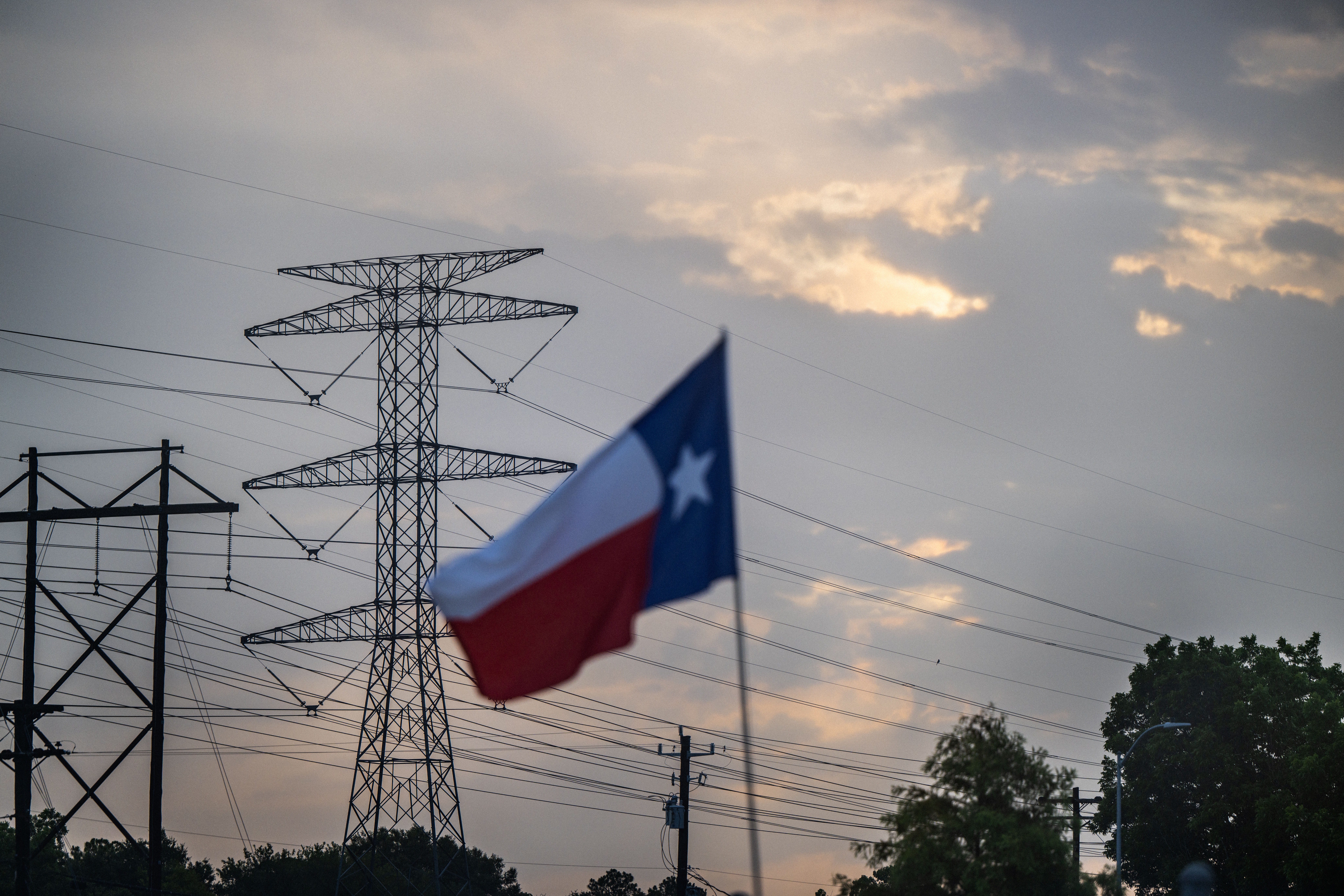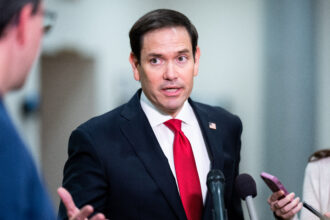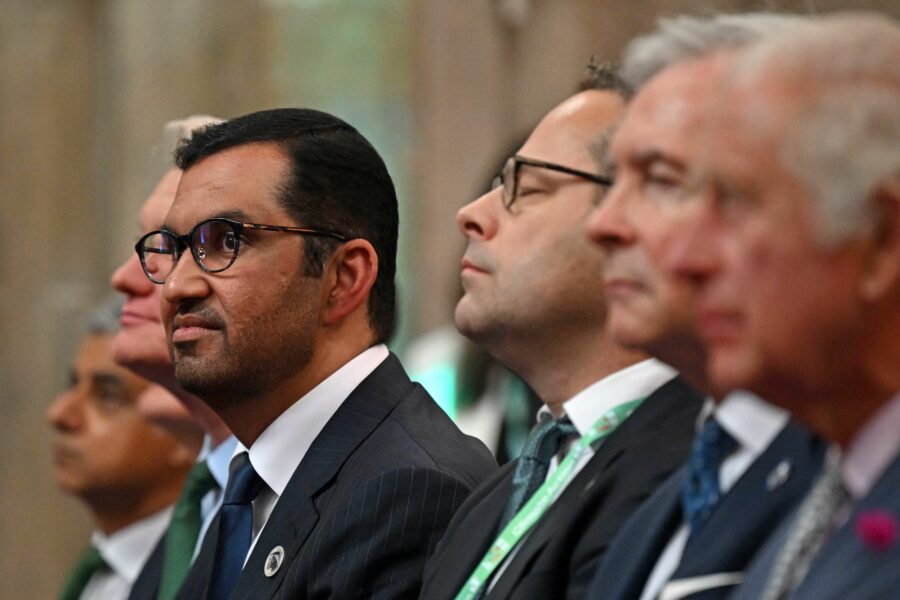New York City’s climate week, the annual event that brings together people from around the world to discuss everything climate change, is already off to a notable start.
In what’s believed to be the biggest climate demonstration since before the pandemic, an estimated 75,000 protesters marched through the streets of Manhattan on Sunday, chanting “we need clean air, not another billionaire,” to demand that President Joe Biden and other world leaders quickly end the use of oil, gas and coal. And on Monday, another 500 protesters marched through Wall Street, where more than 100 demonstrators were arrested after blockading the entrance to the Federal Reserve Bank as they called on the financial sector to stop funding climate-warming fossil fuel projects.
But the demonstrations were just the hors d’oeuvres. The attention now shifts to the 78th United Nations General Assembly, where on Wednesday, U.N. Secretary-General António Guterres will host the Climate Ambition Summit. The special event, which aims to pressure nations to commit to more rapid emissions cuts, will convene dozens of world leaders and attract even more participants from the business, academic and advocacy sectors.
From roundtable discussions and expert panels to tough negotiations about thorny topics like “climate reparations,” here’s what to expect at Wednesday’s summit and through the rest of the week.
Inside the Climate Ambition Summit
Secretary-General Guterres will deliver his opening remarks for Wednesday’s Climate Ambition Summit at 10 a.m., Eastern Standard Time. The event will also be livestreamed, so anyone not in attendance who wants to watch the talks can do so on the U.N.’s website.
The summit “aims to accelerate climate action by governments, business, finance, local authorities and civil society,” the U.N. said on its website, as well as foster consensus among nations ahead of the COP28 global climate talks in November. It comes at “a critical political milestone” for the world’s nations to prove that they’re serious about transitioning quickly to a clean energy economy.
The U.N. event, last held in 2020, will cover a range of highly ambitious goals, such as persuading nations to commit to stronger emissions reductions targets, speeding up global construction of renewable energy and holding companies and governments accountable for their net-zero pledges. But much has changed since 2020, and in that sense, this year’s conference also takes on a new sense of urgency and a more focused agenda.
This will be “a no-nonsense summit,” Guterres said back in December. “No compromises. There will be no room for back-sliders, greenwashers, blame-shifters or repackaging of announcements of previous years.”
Specifically, the beginning of this year’s Climate Ambition Summit is expected to address the challenges of reaching a global agreement to phase out fossil fuels. Finding common ground on such an agreement has been difficult, to say the least. Nations managed to strike a deal during last year’s COP27 climate talks, but only after changing the agreement’s text in ways that outraged climate activists. Instead of “phase out,” nations agreed to “phase down” their use of fossil fuels only in regards to “unabated coal power.” And many climate experts worry that the world will fail to meet the Paris Agreement goals if a global commitment to phase out all fossil fuel use isn’t reached soon.
Summit organizers also specifically set aside time on Wednesday to address the topic of loss and damage. That’s the idea that wealthy nations, which are most responsible for causing climate change, should help fund renewable energy and climate adaptation projects in developing countries, which disproportionately face the consequences of climate change.
Countries agreed for the first time last year to establish a loss and damage fund, a historic moment in its own right. But many questions remain regarding the fund, including where the money will come from and who will get it. You can monitor the progress of that session via livestream here, starting at 1:15 p.m. EST.
Outside and After the Summit
There are also plenty of events worth seeing outside of Wednesday’s official summit. One of them comes from a coalition of environmental groups that includes Friends of the Earth, Global Witness, Rainforest Action Network and World Animal Protection. The groups will hold a 10 a.m. EST press briefing on Wednesday in front of the New York Stock Exchange, to urge investors and financial institutions not to fund JBS, the world’s biggest meat packing company.
Brazil-based JBS hopes to list its shares on the NYSE sometime this year after regulators blocked the company’s shares from the listing in 2017 amid corruption scandals. But environmental groups want to scare investors away from JBS, pointing to the company’s long track record of environmental destruction, including buying cattle raised on illegally deforested swathes of the Amazon. They’re also urging the Securities and Exchange Commission to investigate JBS for wrongdoing.
“JBS is a notorious company with a well documented history of destructive practices and massive impacts on the climate, including illegality, corruption, bribery and land conflict with Indigenous communities,” said Merel van der Mark, a spokesperson for Rainforest Action Network, in a press release. “To fulfill its role of basic due diligence, we request that the SEC conduct a thorough investigation into the pattern of alarming and unacceptable corporate conduct by JBS before granting it an IPO on the NYSE.”
Other notable events include:
- The World Energy Transition Summit, which will be live-streamed Wednesday on the World Climate Foundation’s website starting at noon EST;
- The World Biodiversity Summit, which will discuss the planet’s worsening biodiversity crisis and how to mitigate it, can also be viewed on the foundation’s website via livestream Thursday starting at 11:45 a.m. EST;
- A new report that says the world is off track to meet a goal to reduce food waste, which accounts for up to 10 percent of global greenhouse gas emissions, will also be unveiled Thursday by a coalition of groups called Champions 12.3;
- And the New York Times will host its Climate Forward summit all day on Thursday, featuring discussions about climate solutions with former Vice President Al Gore and Microsoft creator Bill Gates.
The climate-themed events continue through at least next week, with the kick off of National Clean Energy Week.
More Top Climate News
California Sues Big Oil in “Watershed Moment”: California is a top oil-producing state with the nation’s biggest population and an outsized influence on the economy. So the Golden State’s lawsuit against Big Oil makes it the latest and largest player among a growing number of local governments looking to hold fossil fuel companies financially accountable for climate change, Lesley Clark reports for E&E News. The lawsuit, filed Friday, accuses the world’s five oil majors and their trade association of misleading the public about the consequences of burning their fossil fuel products.
Climate Remains a Top Issue for Young People. But Their Votes Are Complicated: Young people have expressed plenty of frustration with President Joe Biden, saying he betrayed key campaign promises to address climate change—like ending all new fossil fuel leases on public lands. But young voters are proving to be more complicated, Ximena Bustillo reports for NPR, despite the fact that climate change remains a top issue among that demographic. Bustillo spoke with young, self-identifying Democrats, who say they’re still voting for Biden, citing abortion rights among other reasons.
Regularly Working From Home Could Cut Office Emissions in Half: A new study found that American employees who always work remotely have a significantly smaller carbon footprint than workers who go into the office, Patrick Barkham reports for the Guardian. Researchers from Cornell University and Microsoft analyzed the tech giant’s employee data, finding that people who worked from home full-time cut their emissions by 54 percent, compared to their in-office counterparts. In fact, working remotely two to four days a week can slash emissions by nearly a third, it found.
Today’s Indicator
$2.7 trillion
That’s how much money must be spent globally each year on renewable energy development and other decarbonization efforts to achieve net zero emissions by 2050 and prevent average global temperatures from rising above 1.5 degrees Celsius this century, a new Wood Mackenzie report said.



















